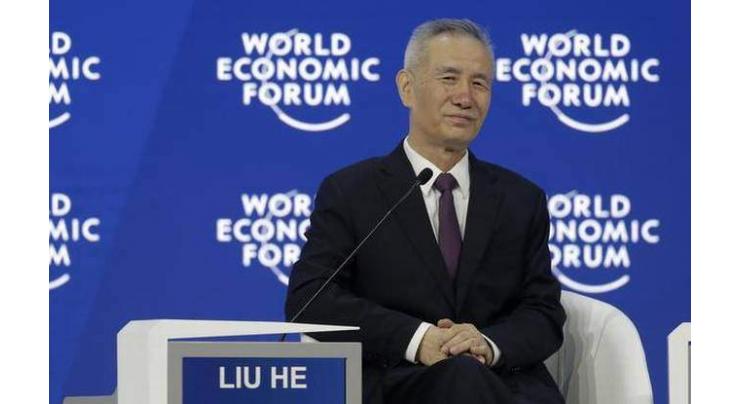
Chinese Deputy Prime Minister To Visit Germany On November 25-28 - Foreign Ministry
Fakhir Rizvi Published November 20, 2018 | 05:33 PM

Chinese Deputy Prime Minister Liu He will pay a visit to Germany in November, where he will discuss the freedom of international trade with the German authorities and representatives of other European countries, the Chinese Foreign Ministry's spokesman, Geng Shuang, said on Tuesday.
BEIJING (UrduPoint News / Sputnik - 20th November, 2018) Chinese Deputy Prime Minister Liu He will pay a visit to Germany in November, where he will discuss the freedom of international trade with the German authorities and representatives of other European countries, the Chinese Foreign Ministry's spokesman, Geng Shuang, said on Tuesday.
"Vice-Premier of the State Council of the People's Republic of China Liu He is to visit Germany from November 25 to 28 at the invitation of the German finance minister and take part in the Sino-European summit in Hamburg," Geng said at a briefing.
The Foreign Ministry spokesman stressed that during the visit the deputy prime minister will exchange views on Sino-German practical cooperation, bilateral relations as well as discuss international and regional issues of mutual interest. Along with that, the Chinese deputy prime minister will take part in the 8th Sino-German Hamburg Summit.
Geng added that "in modern conditions on the international scene, China and Germany should strengthen cooperation and jointly protect the system of multilateralism and free trade, promote the openness of the world economy."
"Hamburg Summit: China meets Europe" is a biennial high-level meeting on Sino-European economic relations initiated by the Hamburg Chamber of Commerce to provide a platform for an open dialogue between Europe and China. The meetings have been held since 2004.
This year's summit is particularly relevant considering the recent China-US trade war which escalated in June after Trump announced that $50 billion worth of Chinese goods would be subject to 25 percent tariffs, with Beijing responding in kind. Since then, the two countries have exchanged several rounds of trade duties against each other.
Related Topics
Recent Stories

Rock-solid Ruud racks up season-leading win in Barcelona

At UN, Iran says it will make Israel 'regret' reprisals

G7 hears calls for 'critical' Ukraine aid

EU seeks to leverage might to confront China, US challenge

5 Customs officials martyred as their vehicle ambushed by terrorists in D I Khan

Pak-New Zealand match called off due to rain

NHA restores traffic on roads affected by recent rains in Balochistan

China to fully support Pakistan's efforts against terrorism: Ambassador Jiang

U.S. envoy calls on Foreign Minister Ishaq Dar

Poland arrests man over suspected plan to kill Zelensky

EU wants to ease youth movement to and from UK

Police foils attempt of supply mainpuri raw material
More Stories From World
-
At G7, Blinken seeks European support for pressure on China
2 hours ago -
Thousands of Bosnian Serbs rally against UN resolution on Srebrenica
2 hours ago -
Israel assault has turned Gaza into 'humanitarian hellscape': UN
3 hours ago -
Husband of ex-Scottish leader charged over alleged embezzlement: police
3 hours ago -
Ecuador hit by power cuts of up to 13 hours amid drought
3 hours ago -
Hugs or bullets? How Mexico presidential rivals aim to curb violence
3 hours ago
-
Kenya military chopper crash kills defence chief, senior officers
4 hours ago -
Biden hails 'incredible' Kennedy family backing against RFK Jr.
4 hours ago -
Maldives court frees jailed ex-president ahead of vote
4 hours ago -
Probe into Portugal ex-PM Costa appears to collapse
4 hours ago -
Jury selection stalls in Trump criminal trial
4 hours ago -

At UN, Iran says it will make Israel 'regret' reprisals
4 hours ago
